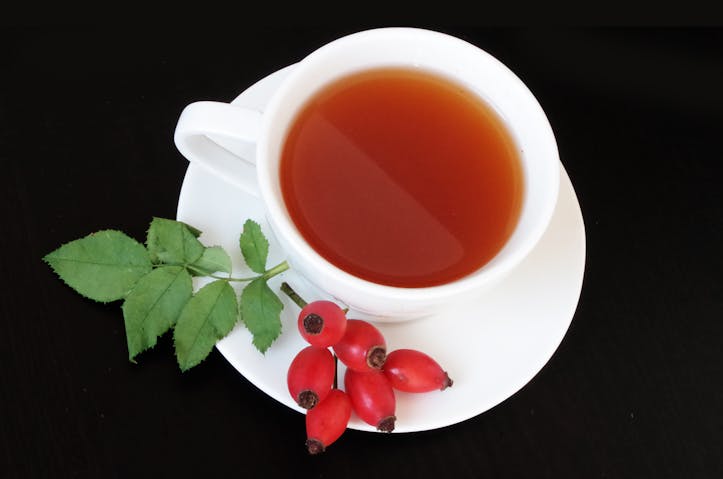Fasting Tea Benefits: Can You Enjoy Herbal Tea While Fasting?

When considering a fasting regimen, a common question arises: can you have herbal tea when fasting? This post delves into the benefits of incorporating herbal tea into your fasting routine and how it can support your health and wellness goals.
Understanding Fasting and Herbal Tea
Fasting is a practice that has been followed for centuries, often for health or spiritual reasons. It typically involves abstaining from food and sometimes drinks for a certain period. However, many people find that herbal tea can be a comforting and beneficial addition to their fasting protocol.
Herbal teas offer a variety of health benefits due to their high concentration of vitamins, minerals, and antioxidants. Unlike black or green tea, which contains caffeine, most herbal teas are naturally caffeine-free and can be enjoyed without breaking a fast. This is because they do not significantly raise insulin levels or provide a substantial amount of calories.
The Role of Herbal Tea in Fasting
During fasting, the body undergoes several metabolic changes, and it’s essential to stay hydrated. Herbal teas can serve as a flavorful way to increase water intake without adding calories. They can also help alleviate some of the minor discomforts associated with fasting, such as headaches and hunger pangs.
Common Beneficial Herbal Teas
- Peppermint Tea: Known for its digestive benefits, peppermint tea can soothe the stomach and ease digestive discomfort.
- Chamomile Tea: With its calming properties, chamomile tea is ideal for promoting relaxation and aiding sleep during a fast.
- Ginger Tea: A potent anti-inflammatory, ginger tea can help reduce inflammation and support immune health.
- Hibiscus Tea: High in vitamin C and antioxidants, hibiscus tea is excellent for boosting the immune system and providing a tangy flavor.
Selecting the Right Herbal Tea During Fasting
Choosing the appropriate herbal tea during fasting is crucial. Opt for organic, non-flavored varieties to ensure no hidden sugars or calories that could interrupt your fast. Additionally, be mindful of any added ingredients in blend teas that may not be fasting-friendly.
It’s also worth noting that while herbal teas are generally considered beneficial for fasting, individual responses can vary. It’s essential to listen to your body and adjust your tea consumption accordingly. If you have specific health concerns or conditions, it’s always best to consult with a healthcare professional before introducing herbal tea into your fasting routine.
Integrating Herbal Tea into Your Fasting Plan
If you’re new to fasting, you may wonder how to incorporate herbal tea into your plan effectively. A good rule of thumb is to enjoy a warm cup of herbal tea in the morning to start your day or in the evenings to help wind down. Drinking tea can also be a mindful practice, helping you to stay present and focused during your fast.
Conclusion and Final Thoughts
In conclusion, herbal tea can be a valuable addition to your fasting routine, offering hydration and health benefits without compromising the fast. Next time you embark on a fasting journey, consider reaching for a soothing cup of herbal tea to support your journey.
Discover if you can have herbal tea when fasting and how it can enhance your fasting experience with health-promoting benefits.
Recent Posts
- Fasting Tea Benefits: A Look at Alternatives to White Yogi Healthy Tea
- Fasting Tea Benefits After White Yogi Discontinuation
- Fasting Tea Benefits: What Happened to White Yogi Healthy Fasting Tea?
- Fasting Tea Benefits – What Happens When Discontinued?
- Unlocking Alternatives to White Yogi Healthy Fasting Tea
- Fasting Tea Benefits and Alternatives When White Yogi Healthy Brand Discontinued
- Fasting Tea Trends: The Discontinuation of White Yogi Healthy Tea
- Fasting Tea Discontinued: What’s Next for White Yogi?
- Fasting Tea Benefits and Alternatives to White Yogi Healthy Fasting Tea
- Fasting Tea Benefits: The White Yogi Healthy Brand Discontinuation
